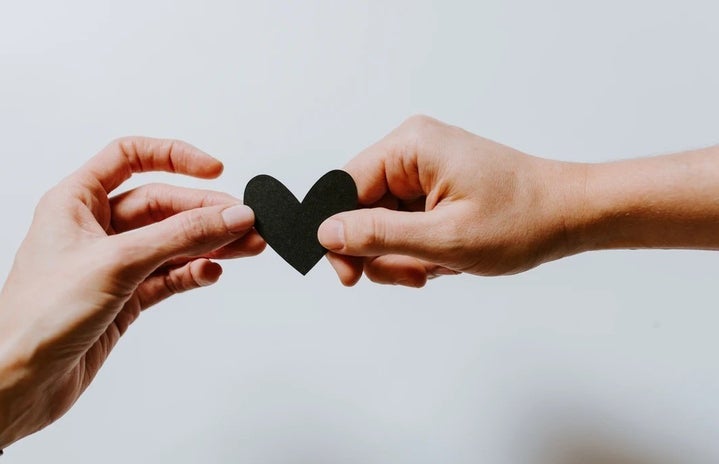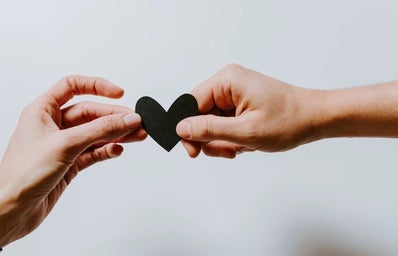As humans, we’re creatures of habit. When we fall out of our normal cycle, we tend to search for something that fills that hole. Unfortunately, it’s simply in our nature. While this can be implemented in our daily tasks – like having the same breakfast every day, always brushing our teeth before bed, etc. – it always creeps its way into our relationships.
Do we choose the love we think we deserve?
I think it’s hard to say. While I don’t necessarily believe that that’s not true, I think we lean towards choosing the love we’re used to. When we’re young, we watch our parents/guardians interact with one another and sometimes we end up seeking that same dynamic in a partner. Of course, this isn’t true in all circumstances; plenty of my friends that have divorced parents run far away from potential partners that mirror their parents’ bad habits. However, we can’t always blame our parents for the bad decisions we make when we fall in love.
When you’re continuously falling for a “bad person“, there comes a time where you have to look at your own decisions. Everyone has red flags. No matter how “great of a person” you are, we all have our own flaws (some worse than others). It’s normal for people to “fix” their personality while trying to impress someone, i.e. you’re a naturally messy person, but make sure your home is always clean before your date comes over. One day, the facade cracks and we have to face our true selves. Though it might be tough to digest, most people show their red flags at some point, and it’s rare (but possible!) that someone completely blindsides you.
If you’re interested to know the possible signs that you might be in a toxic relationship, there are plenty of ways to do your own research; however, if you’re wondering about that in the first place, that might be the first red flag in itself.
How can you start Healing?
Whenever you experience a breakup – friendship, romantic partner, etc. – the healing process can almost feel like you’re mourning the person. Like in the stages of grief, you’ll face denial, shock, anger, etc., in no certain order. Some days might look like laying in bed, cuddling with old clothes and tissues, while others you might laugh and smile a lot, forgetting the pain for a moment.
While people begin preaching how important self love is and taking time for yourself, there is a certain amount of healing you must do in a relationship. That being said, jumping from relationship to relationship isn’t always the healthiest decision either. It’s easy to believe you’ve completely healed when you’re by yourself and haven’t had to face all of your relationship trauma.
In my later years of high school, I was in an almost two year relationship that was filled with insecurity, arguments, and hurt. For the two years that followed the break-up, I had ridden the wave of anger, shock, disbelief, etc. When it came to falling in love with someone else, I thought I was free of the hurt from that previous relationship. Spoiler alert: it’s not that easy.
Although it was easy for me to blame my ex for the issues in our relationship, it wasn’t until I started dating my current boyfriend (two years later) that I recognized how my behavior had also been unhealthy. That’s not to say I didn’t take any responsibility for my anxiety and insecurities, I just didn’t realize I had my bad habits of being petty or stonewalling when confronting my feelings wasn’t “normal”. Because of my past relationship, I believed talking about my issues/emotions would always be met with an argument, so when I first spoke my mind to my boyfriend, I feared the retribution that would follow and quickly shut down. Of course, my boyfriend was kind and understanding, handling my feelings with care, allowing me to be rightfully upset.
So, what’s the issue?
Well, since I had been habituated to expecting a fight whenever I talked about my feelings, I wasn’t prepared with this type of response. I was expecting to be told my feelings were wrong, not an apology and reassurance. As hard as it is to admit, it was difficult for me to adjust to this behavior. Embarrassingly enough, sometimes I craved a fight from him; I didn’t know how to handle my emotions because I was accustomed to arguing about my feelings instead of facing and dealing with them properly. When I was frustrated, I tended to make petty remarks because I was used to handling problems in an argumentative way, but on the rare occasions I tried this with my boyfriend, he didn’t feed into it and instead expressed that it hurt him, making me realize that it isn’t a healthy way to handle things.
finally… how to embrace healthy love
With how dysfunctional our society is, it’s not surprising that our culture struggles with accepting when a relationship is actually a good one. Situationships, talking stages, friends with benefits; all of these things can be fun, but most of the time aren’t healthy long-term. When breaking free of a toxic relationship – which can only truly happen when you choose to leave – I believe it’s only natural to search for a “quick fix”, a fling or hook-up, but those are only viable for so long. Taking your time and discovering yourself again is vital to being able to be in a healthy relationship. You cannot have two halves of a person, you need two wholes to come together.
It’s easy to find blame in yourself after being in a toxic partnership. “Why didn’t I see the signs?” “Why did I go back to them?” “Why couldn’t I have left sooner?” In the aftermath of destruction, you might see yourself losing trust, not only in others, but in yourself. Once you begin to build that again, eventually you can try to forgive yourself for the pain and mistakes you may have made. Hopefully you can create a good support system for the extra hard days, and the most important thing is to take your time.
Recognize and learn your unhealthy habits, trust your instincts, and embrace the good in life.



